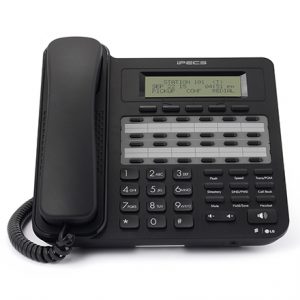iPECS eMG100 – Newest Member of iPECS Family
Seamless expandability for SMBs
With iPECS eMG100, you can start small with 8~12 users and grow seamlessly to more than 100 ports. Employing a multi-cabinet (KSU) architecture that allows four type of basic KSU and one type of expansion KSU to configure a dynamic system. iPECS eMG100 delivers cost effective communications to small and growing businesses and affordable expandability to medium sized businesses.
Simple installation and maintenance
The iPECS eMG100 adopts advanced HTML5 based Web admin, which is an intuitive simple solution to system configuration and maintenance. The Web Manager Install Wizard presents the basic installation in a series of simple steps for an easy basic installation in English or other local languages.
Cost effective and expandable VoIP technology
iPECS eMG100 platform includes advanced VoIP technology supporting low cost SIP trunking, on/off-premise mobility, remote connectivity and multi-site networking with minimal cost to overcome geographical boundaries.
Rich features and applications
The rich feature set spans all the basic features and functions of a modern communications platform such as Transfer, Caller ID, MOH, etc. and delivers advanced functions including an integrated multi-level Auto Attendant and Voice Mail with both mobile and E-mail notification.
Key Features
▪ Integrated Auto Attendant /Voice Mail
▪ Centralized Voice Mail
▪ E-mail notification
▪ IP-Attendant
▪ (CAS) Attendant Call
▪ Automatic Call Distribution (ACD)
▪ Personal groups
▪ Mobile extension
▪ SIP extension
▪ Remote control from mobile phone
▪ Web call back
▪ SMDR (Station Message Detail Recording)
▪ Traffic analysis
▪ System scenario call routing
▪ Multiple language support
▪ Green power save
Ericsson-LG Applications
▪ iPECS Attendant
▪ iPECS Communicator
▪ iPECS UCS
▪ Phontage
▪ iPECS IPCR
Supported Terminals
▪ LIP-9070
▪ LIP-8000E Series
▪ IP8800E Series
▪ LDP-7000 Series
▪ LDP-9000 Series
▪ LDP-DPB
▪ GDC-450H
▪ GDC-500H
▪ WIT-400HE
▪ ACT-50
3rd Party Applications
▪ TAPI (3rd Party)
▪ Fidelio I/F
▪ SIPE
* Required an each license
Power & Board Components
Item Board Description
PSU Power Supply Unit, pre-installed in each cabinet
Interface Boards
System Capacity
CO/Trunk lines Max. 74
Stations Max. 140
Attendants 4
Modem Channel 1(MODU)
Power Fail Circuit Max. 6 (1 per KSU, EKSU, CH204, CH408, CS416)
VSF Device 1: Built-in AA/VM
VSF Device 1: Built-in AA/VM w/MEMU
VSF Device 2 (VVMU)
4 channels(2ch. by default, 2ch. by license), 1 hour
15 hours (no license needed)
4 channels and 15 hours(by license), 1 hour(by default)
DECT Phones 48
Built-in VoIP channels 8(2 channels by default, 6 channels by license)
VVMU VoIP channels 8(by license)
IP Stations and SIP Trunks 48 port (32 Stations+16 SIP Trunks)
SMDR buffer 5,000
System Speed Dial / Zones (Groups) 3,000 numbers, 23 digits each / 10 zones
Conference Groups – System 40
Conference Groups – Station 20 per station
Item Specification
LAN Interface
10/100Base-T Ethernet (IEEE 802.3) 1port,
Half or Full Duplex (Auto-Negotiation)
Serial Port(RS-232C) 1
USB(2.0) Host port 1
VoIP Protocol SIP and H.323 Revision 2
Voice Compression G.711/G.726/G.729/G.723.1
Voice/Fax Switching T.38
Echo cancellation G.165

